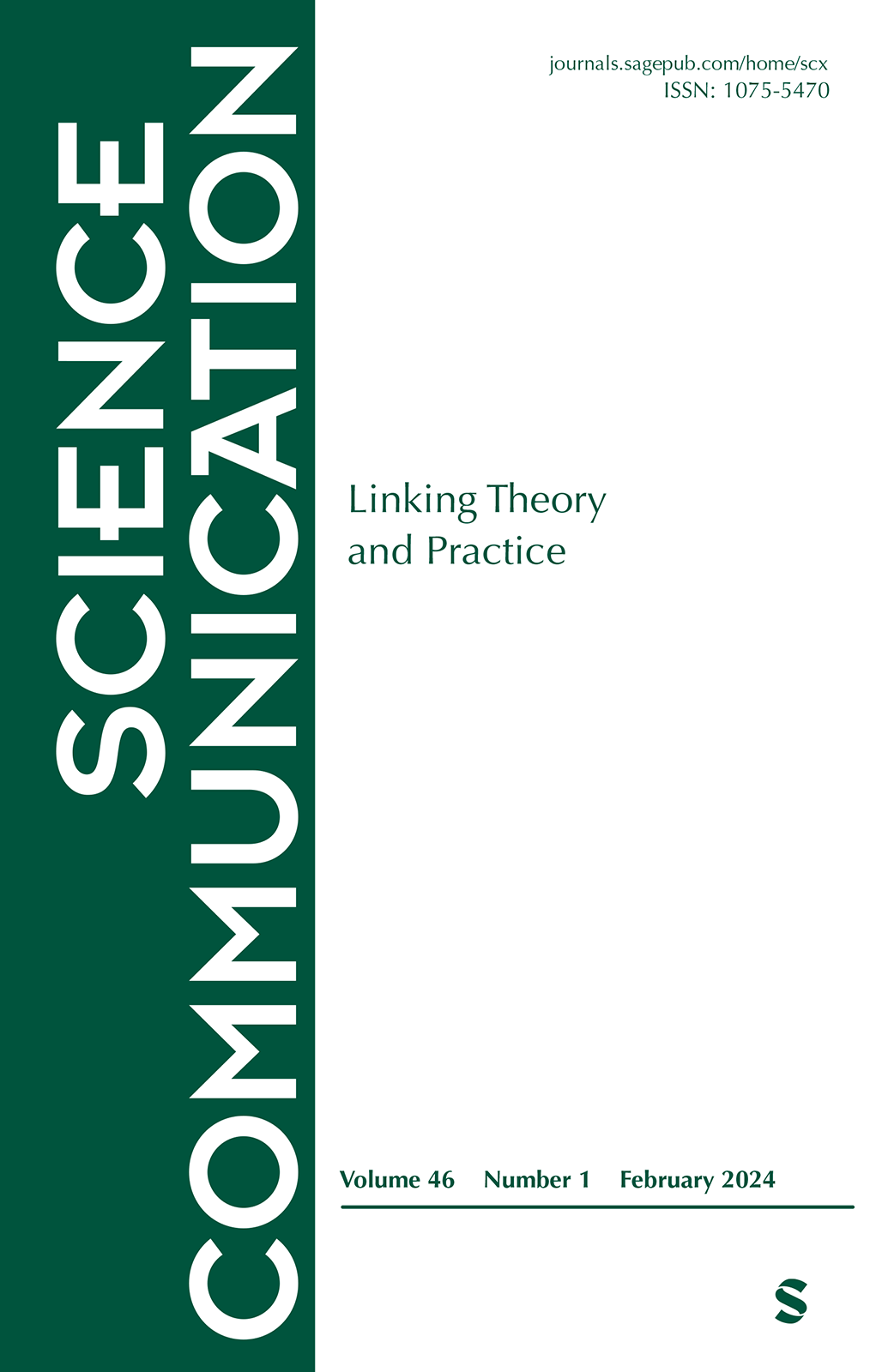为了我自己:个人关联在信息寻找中的作用
IF 4.1
1区 文学
Q1 COMMUNICATION
引用次数: 0
摘要
为了测试风险信息搜索和处理模型在不同程度的个人相关性下是否一致地执行风险,本研究侧重于全氟烷基物质和多氟烷基物质(PFAS)污染的背景。一项实验调查(N = 1,323)的结果表明,当PFAS污染被描述为与参与者的相关性较低时,信息主观规范发挥了更大的作用。此外,政府信任和科学信任仅在低相关条件下与信息寻求相关。最后,担忧和焦虑的不同结果表明,需要更好地理解离散情绪对信息寻求的影响。本文章由计算机程序翻译,如有差异,请以英文原文为准。
For My Own Sake: The Role of Personal Relevance in Information Seeking
To test whether the risk information seeking and processing model performs consistently when a risk is viewed at different levels of personal relevance, this study focuses on the context of per- and polyfluoroalkyl substances (PFAS) contamination. Results from an experimental survey ( N = 1,323) indicate that informational subjective norms play a bigger role when PFAS contamination is portrayed as having lower relevance to participants. Moreover, trust in government and trust in science are associated with information seeking only in the low relevance condition. Finally, the different results of worry and anxiety suggest a need to better understand discrete emotions’ impact on information seeking.
求助全文
通过发布文献求助,成功后即可免费获取论文全文。
去求助
来源期刊

Science Communication
COMMUNICATION-
CiteScore
13.50
自引率
4.40%
发文量
19
期刊介绍:
Science Communication is a prestigious journal that focuses on communication research. It is recognized globally for publishing top-quality manuscripts that demonstrate excellent theoretical frameworks and robust methodology. Our journal embraces a broad definition of science, encompassing not only the natural and physical sciences but also social science, technology, environment, engineering, and health. Regardless of the scientific area, effective communication is always the focal point of our investigations.
Apart from theoretical and methodological rigor, we place great emphasis on the practical implications of scientific communication. Therefore, we expect all submitted manuscripts to address the real-world applications and significance of their research, alongside theoretical considerations.
In summary, Science Communication is an internationally renowned journal dedicated to bridging the gap between science and society. By promoting effective communication in various scientific domains, we strive to engage readers with intriguing research that has tangible implications for the world around us.
 求助内容:
求助内容: 应助结果提醒方式:
应助结果提醒方式:


